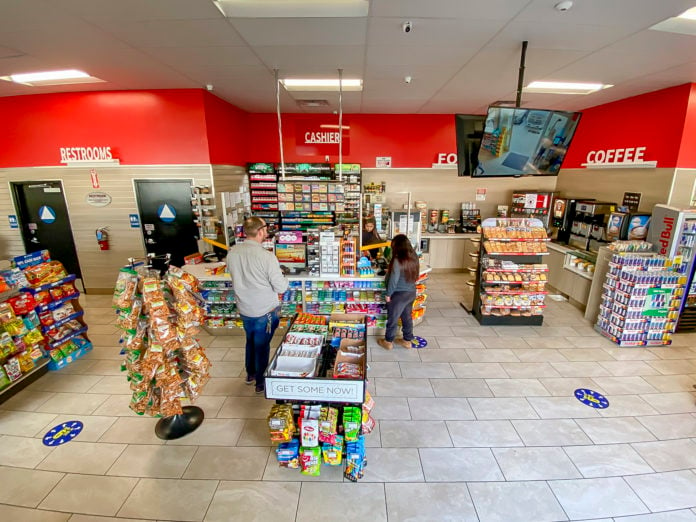A little bit of sunshine and low gas prices are usually enough of an incentive for customers to flock to John Chamian’s Mobile gas station in Long Beach. But not these days.
The stay-at-home orders imposed to combat the Covid-19 pandemic have cut demand in half at local gas stations, even as the average price for a gallon in Los Angeles County dips to $3.32.
“We’re just surviving, like everybody else,” Chamian said. “It’s very quiet.”
A similar scenario is playing out at United Pacific’s 415 gas stations and convenience stores, about half of which are in Southern California, according to company’s president and chief executive, Joe Juliano.
“The governors of the respective states where we operate deem gas stations an essential service, so that’s good news,” Juliano said. “But with the stay-at-home order or shelter-in-place orders … traffic and therefore demand for gasoline and diesel is down about 50%.”
There is some consolation, though, Juliano said.
“Our convenience stores are faring much better,” the executive said. “For consumers that don’t want to go out too far away from home or don’t want to go into grocery stores, we are perceived as an alternative, so they are shopping with us. Things like tobacco and beer, for example, are up.”
The Long Beach-based company, owned by Tokyo-based telecom holding company and investment powerhouse SoftBank Group Corp., is a fuel distributor for Shell, Conoco, 76 and United Oil, and generates about $3 billion in revenue, according to Business Journal estimates.
To protect its customers and some 2,500 employees from contracting the coronavirus, United Pacific has implemented several measures, including selling packaged food only, banning beverage refills and frequently wiping down customer touch points, such as credit card readers and other surfaces. It’s also installing “sneeze guards” at its cash registers.
“We started three test sites a week ago, and now we’re up to a little more than 40 sites, and in the next two weeks all of our stores will have those acrylic barriers,” Juliano said. “We haven’t had one positive coronavirus case, knock on wood.”
The dip in demand at gas stations is also affecting local refineries, according to David Hackett, president of Irvine-based transportation energy consultancy Stillwater Associates.
“Refineries are reducing their production levels to match the gasoline demand,” Hackett said. “If the gasoline demand is off by half, they pretty much have to be running at half rate. It’s likely that some of the refineries will shut down.”
Commuting represents the majority of gas consumption, with leisure travel, shopping, rides to school and commercial traffic accounting for the rest.
“Demand is not going to come back until people get back to work,” Hackett said.

